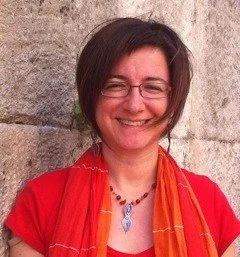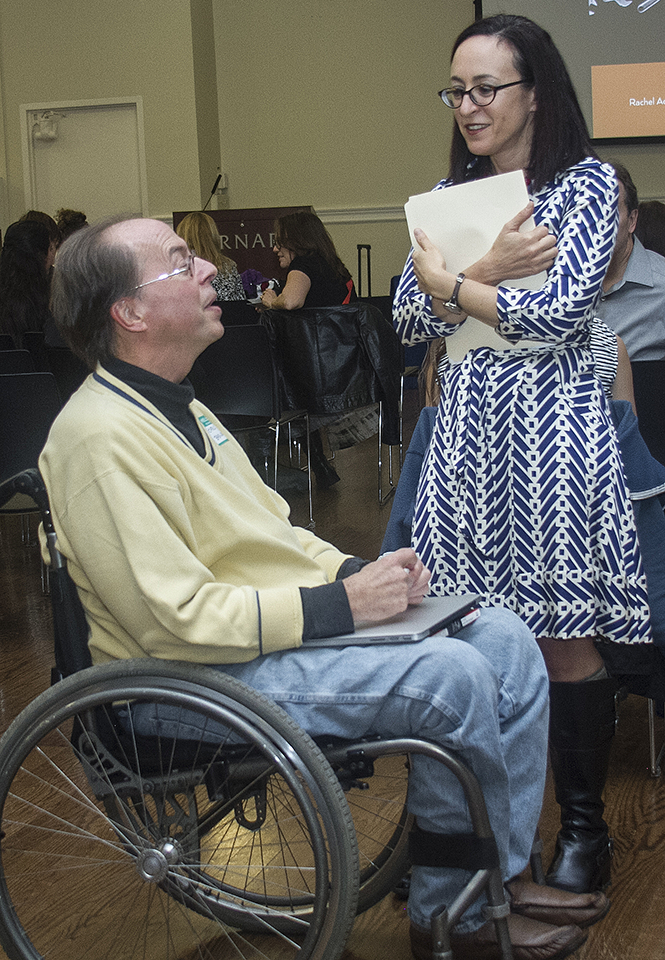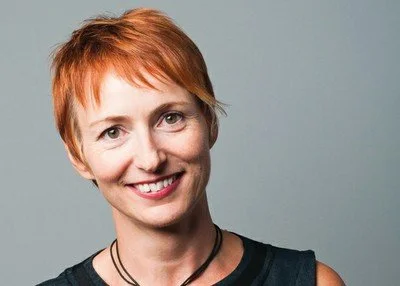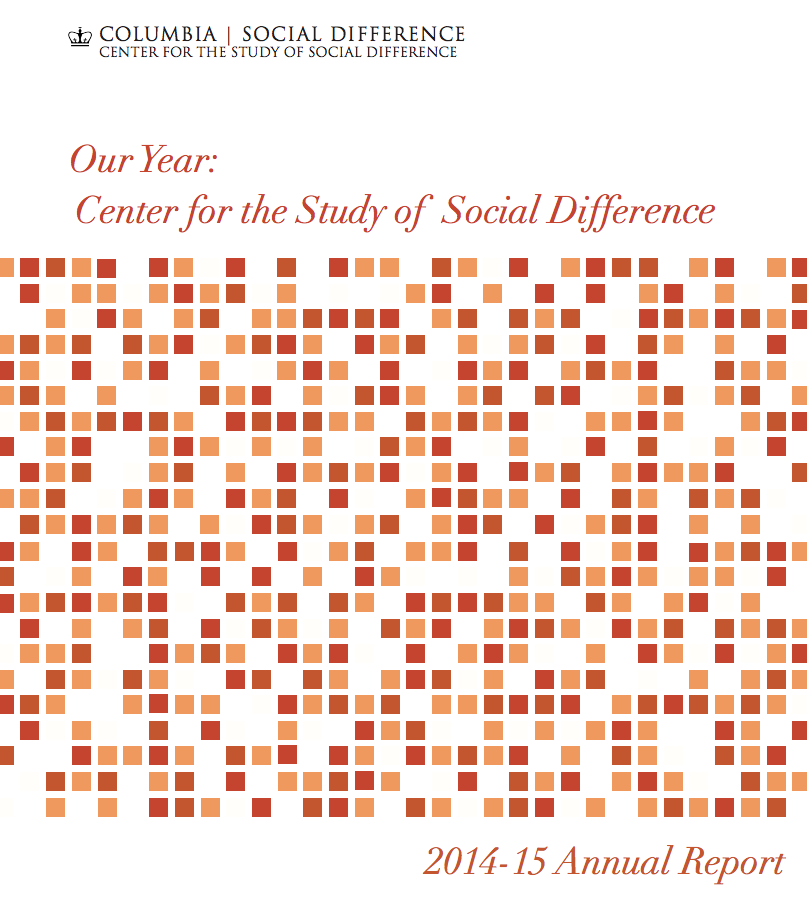Working Group Members Edit Women's Studies Journal on Gender and Genocide
The European Journal of Women's Studies (EJWS) recently published a special issue on gender and genocide that was co-edited by Ayşe Gül Altınay, Professor of Sociology and Gender Studies, Sabanci University, and a member of CSSD's Women Mobilizing Memory working group. The issue was also edited by Andrea Petö, Professor of Gender Studies, Central European University, and included an interview with Marianne Hirsch, Women Mobilizing Memory project director, Director of the Institute for Research on Women, Gender, and Sexuality, and Professor of English and Comparative Literature at Columbia University.
Pictured: Ayşe Gül Altınay
The issue asks what role gender plays in the international legal and political frameworks created to prevent and punish genocidal acts and grapples with the nuances of memory, silence, gender, and genocide. Hirsch discusses feminist strategies to combat nationalism and militarism with scholarly analysis, art, and activism, among other issues.
Access the free introduction to the EJWS here.
Working Group Member Publishes on Lack of Support for Disabled in Indonesian Education
Dina Afrianty, member of the Gender, Religion, and Law in Muslim Societies working group, published an article on the limited degrees of support services for people with disabilities in Indonesian higher education institutions.
"People with disability: locked out of learning?"—Afrianty's blog post for the University of Melbourne site Indonesia at Melbourne—claims that increasing enrollment in higher education is still limited by a lack of infrastructure and supportive government policies and academic services.
While some universities have made accommodations and government has voiced verbal support, the existing segregated special school system allows many institutions to turn away disabled students, who rely heavily on family support if they do gain entrance to mainstream schools, writes Afrianty.
Afrianty suggests using Islamic texts that emphasize social justice to change discriminatory attitudes, along with better staff training and increased funding. Read the full article here.
Alisa Solomon Examines the Historic Theater of "Hamilton" in The Nation
Alisa Solomon, Women Mobilizing Memory member and associate professor of journalism at Columbia University, wrote in The Nation that "Hamilton" is not only a game changer because it brings rap to Broadway, but also because it integrates the contemporary musical style so seamlessly with the styles and structures of traditional musical theater.
While acknowledging rap as the latest popular music deserving to contribute to Broadway, the show also pays tribute to the older form by examining the themes of self definition and Americanness, both longstanding elements of American musical theater, according to Solomon.
The strong, multiracial casting of "Hamilton" also establishes that America’s history—and its future—belong to men and women of color as profoundly as to anyone else, she writes.
Read the full article here.
HEMI Publishes "Art, Migration, and Human Rights" Dossier
Notes on the August 2015 course on “Art, Migration, and Human Rights,” offered by the Hemispheric Institute of Performance and Politics, which partners with CSSD's Women Mobilizing Memory working group.
In August 2015, a group of 38 students, professors, researchers, photographers, filmmakers, artists, and activists from 13 different countries boarded a bus in San Cristóbal de las Casas for a weeklong trip across the southern Mexican state of Chiapas and the cities around it to study the urgent issue of migration. The trip was part of a three-week course on “Art, Migration, and Human Rights,” offered by the Hemispheric Institute of Performance and Politics, which partners with CSSD's Women Mobilizing Memory working group. Linked here is a dossier that is a collaborative project assembled in a week by the participants of that course—an exercise in collaborative pedagogy, the production of situated knowledge, and online authoring.
Keywords for Disability Studies Symposium Explores Key Questions for the Future
Disability scholars, artists, activists, and students gathered at the Keywords/Key Questions for Disability Studies Symposium this October to discuss the future of disability studies.
2015 has been a landmark year for disability studies and activism both at Columbia and throughout the United States, as the U.S.’s foundational disability rights legislation, the Americans with Disabilities Act (ADA), turned 25 this July. The anniversary of the ADA, whose legacy is still the subject of much critical debate, coincided with the release of this summer’s Keywords for Disability Studies (NYU Press, 2015), a field-defining collection of essays co-edited by CSSD director Rachel Adams, along with Benjamin Reiss (Emory University) and David Serlin (University of California, San Diego). The fall semester also marked the launch of Columbia’s new University Seminar on Disability, Culture, and Society, following the conclusion of CSSD’s Future of Disability Studies Working Group last spring.
In celebration of these new beginnings and opportunities for reflection, disability scholars, artists, activists, and students gathered at the Keywords/Key Questions for Disability Studies Symposium this October to discuss the next chapter of disability studies. Photos from that meeting are available here.
The two-day symposium began with an artists’ panel on the evening of October 1, where artists Riva Lehrer, Park McArthur, and Sunaura Taylor discussed the key concepts that have informed their artistic practices as people with disabilities. The presentations and Q&A session covered a range of issues including inaccessibility in the art world, representations of people with disabilities in visual art, and the discursive divides between disability scholarship and activism.
Women Mobilizing Memory Member on Democracy Now
Zeynep Gambetti, a member of the CSSD working group Women Mobilizing Memory and participant in the Collaboration and Co-Resistance conference and workshop, appeared on Democracy Now on September 11 to discuss the current series of attacks on Kurdish citizens and HDP party offices in Turkey.
Gambetti's segment begins at 25:00.
Gambetti, Associate Professor, Political Science & International Relations, Boğaziçi University, said that the Erdoğan government has "hijacked legitimate elections" with these reprisals against HDP expansion in the Turkish parliament and the political violence is pushing Turkey toward civil war. Women Mobilizing Memory staged a protest against the anti-Kurd violence at Columbia University the day before Gambetti's appearance.
Watch the discussion here.
Digital Black Atlantic Project Attracts Grants and Honors
The CSSD working group Digital Black Atlantic Project (DBAP) is starting the academic year with an array of honors and awards.
The National Endowment for the Humanities granted DBAP a $29,000 digital start-up grant for the development of the beta version of its peer-reviewed digital publishing platform sx:archipelagos.
Project co-director Kaiama L. Glover was elected a Schomburg Fellow-in-Residence for the development of In the Same Boats: Toward an Afro-Atlantic Intellectual History, an interactive digital bio-bibliographical map/timeline project that traces and visually represents the circulation of seminal Afro-Atlantic intellectuals and cultural actors – and their ideas – across the 20th century.
Project Co-director David Scott and working group participant Hebe Mattos were awarded a grant from Columbia University’s Global Centers initiative for the further development of their transnational project, Slavery and Repair, an online pedagogical model and scholarly resource for the representation of alternative histories of transatlantic slavery.
Working group participant Kim Hall was awarded a TOW Innovative Pedagogy Award as well as the inaugural faculty partner of the year award for her launch of the Digital Shange Project and development of the digital-based course “The Worlds of Shange.”
Lila Abu-Lughod's "Do Muslim Women Need Saving?" Reviewed in Public Books
Lila Abu-Lughod's Do Muslim Women Need Saving? received a favorable review from Leti Volpp in Public Books.
Volpp remarked that Abu-Lughod's book is "a great service to those of us who have long wanted for a resource we can recommend to explain why Muslim women do not need saving" and that it "works hard not to alienate the skeptical reader."
The book provides a multi-faceted examination of the Western obsession with constraint and choice that is borne out of the misplaced imposition of the Enlightenment ideals of freedom and autonomy on Muslim women, according to Volpp.
"The presumption of those who would save Muslim women from their unfreedom is that identification with Islam can only be a negative experience and that they are being saved to a more ideal alternative," writes Volpp. That Western alternative is usually identified with "human rights, liberal democracy, and modern beauty regimes" even though not all women seek this identical life, according to Volpp's reading of Abu-Lughod.
Abu-Lughod asserts that the subjugated Muslim woman motif can be politically useful to Western states. She also feels that defining women's rights as human rights assumes the presence of a liberal democracy and in fact acts as a "strategic diversion" for troubled social movements in the global North. Both of these applications leave out the geopolitical and historical realities that forcefully shape Muslim women's lives, writes Volpp.
Read the full review here.
Working Group Helps Produce "An Historic Victory for Women's Equality in Sport"
The International Association of Athletics Federations (IAAF) was recently forced to suspend a sporting policy that CSSD project director Rebecca Jordan-Young and her working group, Science and Social Difference, had been contesting for the past three years.
The International Court of Arbitration for Sport ruled that the onus is on the IAAF to show that naturally high testosterone levels give enough of a performance advantage to warrant the policy; the court did not find the evidence produced by IAAF at the hearing this past spring to be convincing. The IAAF has been given two years to come up with the data to support the policy, or it will be permanently voided.
“Although athletics events are divided into discrete male and female categories, sex in humans is not simply binary,” the court announced in an article in the New York Times.
This ruling does not technically affect the Olympics or other sporting federations (just track and field, governed by IAAF), but it is likely that sports organizations will suspend the policy to avoid additional challenges while they try to gather more data, according to Beck-Young.
The court ruling relied heavily on evidence that Science and Social Difference amassed from sources at Columbia and Barnard and published in Discover, New York Times, BMJ (formerly British Medical Journal), and the American Journal of Bioethics.
Katrina Karkazis, a member of the working group and a bioethicist at Stanford University, told BuzzFeed “It’s a policy that affected all women so [its] suspension is an historic victory for women’s equality in sport.”
CSSD Releases 2014-15 Annual Report
The Center for the Study of Social Difference recently released its annual report for 2014-15. The report announced the successful conclusion of The Future of Disabilities Studies project and the extension of Gender, Religion, and Law in Muslim Societies. Three new projects—Pacific Climate Circuits: Moving Beyond Science, Technology, Engineering, and Economics; The Legacy of Bandung Humanisms; and The Rural-Urban Interface: Gender and Poverty in Ghana and Kenya, Statistics and Stories—were established.
The report announces that alumni contributed over $200,000 in donations last year and the Digital Black Atlantic Project was awarded a National Endowment for the Humanities Digital Start-Up Grant for the creation of a digital publishing platform. The Center for the Study of Social Difference Fund, an inaugural quasi-endowment, was established to build ongoing support for CSSD and its projects.
View the annual report here.
WOMEN MOBILIZING MEMORY IV: A Week of Workshops, Exhibits, and Protest
For its fourth international meeting on "Collaboration and Co-Resistance," Women Mobilizing Memory gathered in New York in September. The group, consisting of scholars, artists and activists from Chile, Turkey and the United States, participated in a series of meetings and events that explored how the legacies of violent political histories might offer fodder for a more progressive and hopeful future. Previous meetings took place in Santiago, Montreal, and Istanbul.
At this multidimensional meeting, the forty participants not only commemorated the anniversary of the 1973 Chilean coup and the victims of the Pinochet dictatorship, they also issued a solidarity statement and protested Turkish violence against Kurdish minorities. One member provided commentary on the crisis for the nonprofit news program Democracy Now. Click to see photos and video.
The week began with a memory walk through Harlem, visiting both known and forgotten sites of art and protest that revealed the vibrant artistic and intellectual legacies of African American and some Anglo American institutions and individuals in the famous neighborhood.
A group art exhibit at the Leroy Neiman Gallery at Columbia opened the same afternoon and was followed by an artists’ roundtable. “Collaborative Archives: Connective Histories” included the work of artists based in New York, Istanbul, Berlin, and Santiago. The artworks demonstrated how intimate objects and stories both animate larger painful histories and resist their violent force. For the group, the artworks remained points of reference throughout the week, offering images through which to imagine and reimagine histories of slavery, war, genocide, and political repression. Click to see photos and video.
A second part of the exhibition, a curation of collectively produced posters, “CHILE: 40 Years of Struggle and Resistance,” opened at the Hemispheric Institute on Performance and Politics at New York University at the end of the week. The group also visited the September 11 Memorial Museum, analyzing and critiquing its official hegemonic strategies of memory. Click to see photos.
A public conference, “Women Mobilizing Memory: Collaboration and Co-resistance,” brought working group members together with scholars and activists from Columbia and New York in a series of comparative roundtables on women's strategies of political protest; on memory sites in Santiago, Istanbul and New York; and on the intimate archives of political violence. The discussions were enlivened by the interdisciplinary approach of the commentators and the focus on action, rather than mere commemoration. Click to see photos from all three panels and a Wishing Tree commemorative event, as well as video from the "Performances of Protest," "Mobilizing Memory Sites," and "Intimate Archives/Political Violence" roundtable discussions.
The bulk of the meeting was devoted to the scholarly work that group members had exchanged and read in advance. The constructive feedback members received on their individual papers and projects generated revisions and a future series of group publications on “Mobilizing Memory: Practicing Politics,” “Intimate Entanglements: Rethinking Kinship and Sexuality,” and “Little Disturbances: Arts and Politics.”
Total immersion in repeated, face-to-face meetings throughout the week enabled the group members to evolve and to grow in their understanding of the material. Across the meetings, they had the chance to consider both the challenges and the benefits of transnational interdisciplinary work, and to practice their commitments to feminist solidarity and progressive social change.
Contributed by Marianne Hirsch, Co-Director, Women Mobilizing Memory











